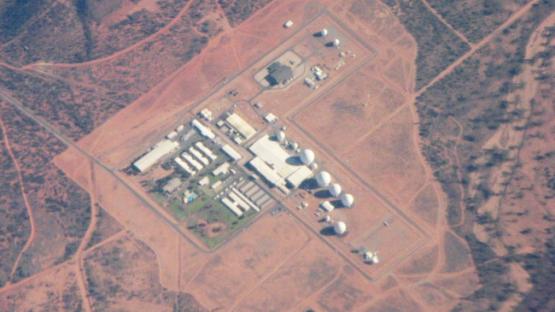Australian intelligence revealed to have access to PRISM

According to Snowden documents analysed by Privacy International, the Australian Signals Directorate had access to and used PRISM, a secret US National Security Agency program which provides access to user data held by Google, Facebook and Microsoft.
This is the third spy agency of the 'Five Eyes' alliance confirmed to have had secret access to Silicon Valley company data - an alliance whose rules and policies remain classified. Earlier this year, a British court ruled that GCHQ access to PRISM, prior to December 2014, was unlawful. This raises questions about the legality of Australia’s intelligence sharing relationship with the NSA.
GCHQ access to PRISM
PRISM was the second blockbuster Snowden story broken by The Guardian which detailed how NSA secretly ordered Apple, Google, Facebook to hand over their users' information. It was described as “one of the most valuable, unique and productive accesses” the agency had.
The next day it was revealed that NSA had provided PRISM access to the UK intelligence agency GCHQ. The Guardian wrote: "the British agency generated 197 intelligence reports from Prism in the year to May 2012 – marking a 137% increase in the number of reports generated from the year before.” Some slides from an NSA PRISM presentation were released but the specific one referencing GCHQ and the numbers was withheld.
No other Five Eyes agency was known to have access to PRISM.
Unlawful intelligence sharing
This was the beginning of a major UK scandal, with the parliamentary oversight body, the Intelligence and Security Committee (ISC), launching an immediate investigation.
Privacy International filed a lawsuit in August 2013 challenging the legality of GCHQ access to NSA PRISM, and whether or not GCHQ was circumventing British law in doing do. Shortly after, the result of the initial ISC investigation was announced, stating that all the intelligence sharing being done, including PRISM, was lawful.
However, eighteen months later, in Privacy International's court case against GCHQ, which had been joined by Liberty, Amnesty International and seven other international human rights groups, all intelligence sharing between NSA and GCHQ, including PRISM was declared unlawful.
PRISM in Australia
Documents subsequently released by Der Spigel, and analysed by Privacy International now reveal that alongside GCHQ, the Australian Signals Directorate also used PRISM. In the list of of “producers issuing” was GCHQ. These slides appear to be the source of the Guardian's story that GCHQ had access to NSA PRISM.
Also in the list of “producers issuing” is 'DSD', which stands for Defense Signals Directorate. DSD are listed as generating 310 reports using PRISM in the year to May 2012; roughly one third more than GCHQ. (The Defense Signals Directorate changes it's name to the Australian Signals Directorate in 2013, after this presentation was created).
Australian law
The actions of the Australian intelligence agencies are governed by the Intelligence Services Act 2001, section 7 of which articulates the functions of the Australian Signals Directorate. This includes Section 13(1)(c), which permits the agency to cooperate with “authorities of other countries approved by the Minister as being capable of assisting the agency in the performance of its functions.” This is the full exposition in statute of intelligence sharing between intelligence agencies.
This falls far short of describing with sufficient clarity and detail the fluid and integrated intelligence sharing activities that take place under the ambit of the Five Eyes arrangement, which would ensure that individuals can forsee the application of these capabilities. The Australian framework fails to set out the circumstances in which intelligence authorities can obtain, store and transfer nationals’ or residents’ private communication and other information that is intercepted by another Five Eyes agency. Neither does their framework set out in which circumstances in any of the Five Eyes states can request the interception of communications by another party to the alliance.
Holding the Australian Signals Directorate to account
The patchwork of secret spying programmes and intelligence- sharing agreements implemented by parties to the Five Eyes arrangement constitutes an integrated global surveillance arrangement that now covers the majority of the world’s communications.
Secret, convoluted or obfuscated law can never be considered law within a democratic society that is supposed to be governed by the rule of law. Australia must seek reforms of it's surveillance law, to end mass surveillance, end unregulated intelligence sharing and ensure human rights are protected.



